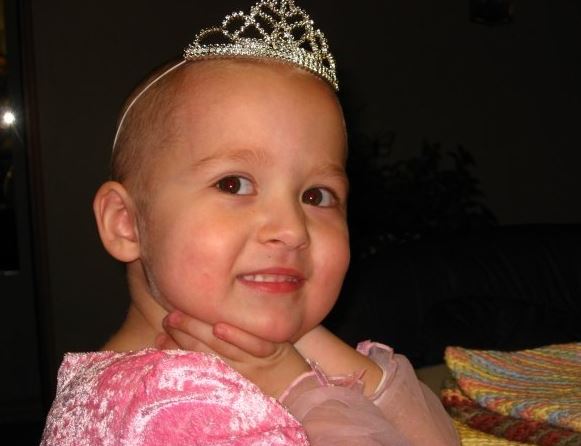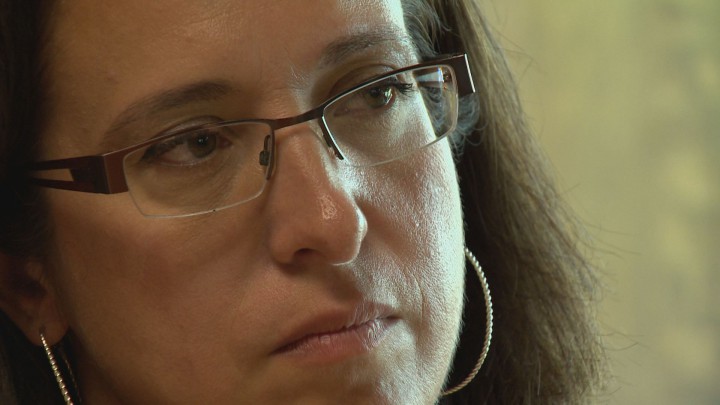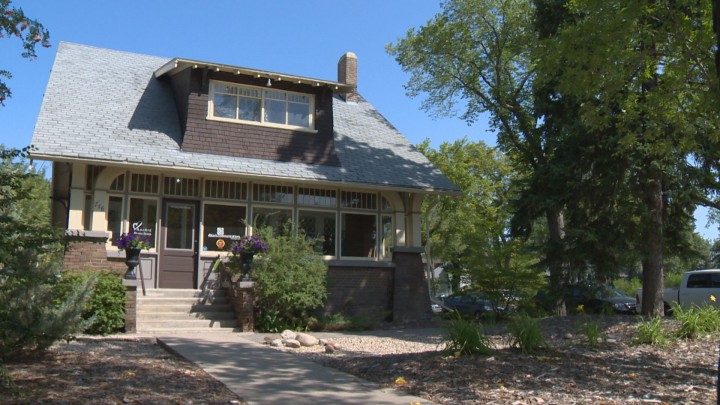Watch above: Only four years old, Prairie Hospice has been filling an increasing void in Saskatoon. Meaghan Craig finds out who runs the program and how they provide the best end of life care to an individual and their family.

SASKATOON – It’s a society that’s helping to think of dying and death in a different way. In 2011, Prairie Hospice Society was formed and has since grown from a volunteer base of 25 to 85.
After its next training session the “hospice without walls” will have 100 volunteers. Individuals that will help support those in the final stages of their illness in the comfort of their own homes.
Donna Fraser is one of its clients and has been for three years.
“It’s just hard. It’s just really, really hard.”
Fraser’s journey with cancer has been a long one. In 1997, she was diagnosed with breast cancer and it has since spread.
“Its gone into the vertebra into the ribs and into the skull.”
The 60-year-old’s prognosis from doctors is a hard one to hear.
“Don’t look for tomorrow’s trouble, just enjoy today.”
Fraser’s doing just that, she says, through the help of Prairie Hospice. She’s been matched with several volunteers after being introduced to the program through home care and says they’ve aided her in many ways.
“It’s actually the best thing because living on my own one of the hardest thing for me to do was to put the fitted sheet on the bed, you don’t realize that something so simple can be so painful.”

Get weekly health news
For many Canadians the thought of dying can be difficult and even harder to discuss.
“There is comfort in being with someone who understands the delicateness of it, is sensitive to it but not scared. Not scared to discuss it, not scared to face it with you,” said Cindy Placsko.
She was one of the first volunteers to train with the society in the fall of 2012 and now helps clients live until they die.
“To have someone that can just come in and understand and just be open to whatever you want to do today or whatever you want to discuss or whatever you need help with,” added Placsko.
“I’m here to help you, I’m here to serve.”
Sharing her time as a volunteer for the society has helped heal Placsko’s heart. She lost her little girl Rayna in 2011 to leukemia just before her daughter’s seventh birthday and was able to honour her wishes to die at home with her puppy by her side.

“It’s extremely rewarding. I feel like I’ve learned a lot from the journey with Rayna and that I can use those lessons and things that she taught me to serve others, is incredibly rewarding.”
Placsko says when they were told by doctors her daughter’s cancer was not going to be cured she was at a loss. At the time there was no hospice in the area that could provide practical help or prepare her for what was to come.
“I’m helping my daughter journey into death and she’s got questions and I don’t know how to answer them.”
Wanting to fill that void, a group of concerned citizens in Saskatoon started Prairie Hospice in the spring of 2011. Training for volunteers began the year after and in January 2013 it began providing services.
Since that time, the organization has helped approximately 110 to 120 clients and their families through difficult times. Those involved say supporting someone who knows the end is coming sooner rather than later is much more than physical and medical support but emotional and spiritual care.
“Sometimes I think there’s tremendous benefit to having someone who is not family or friend that is a little more arms length and you can sometimes share more with them than you might with your family because you don’t want to burden your family.”
According to Ford, the service complements the Saskatoon Health Region’s (SHR) palliative home care program that has somewhere in the realm of 350 people as part of its caseload.
“They’ll provide nurses, social workers, medical people to people in their homes,” added Ford saying that the SHR doesn’t always have time to do the little things for those clients.
“The kinds of things that our volunteers do is the visiting, spending time, getting groceries, taking people to appointments, just taking people for a nice outing, just a myriad of things that probably the health region just hasn’t have time or resources to do that.”
Ford says clients using the SHR program could benefit from the services provided by Prairie Hospice but can appreciate that not everyone wants it.
Fraser encourages anyone in her situation to seriously consider it though.
“You really need the support and there’s a lot of earthly angels out there that have really helped me out.”
- Head-Smashed-In Buffalo Jump heritage site enjoys boost after shout out on ‘The Pitt’
- What is Nipah virus? What to know about the disease as India faces outbreak
- Pizza Pops contaminated with E. coli tied to 7 hospitalizations, data shows
- Pizza Pops E. coli recall grows as roughly a dozen products now hit










Comments